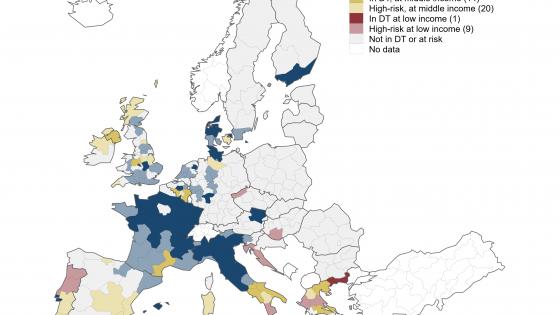DP7103 International Trade Integration: A Disaggregated Approach
This paper investigates the sources and size of trade barriers at the industry level. We derive a micro-founded measure of industry-specific bilateral trade integration that has an in-built control for time-varying multilateral resistance. This trade integration measure is consistent with a broad range of recent trade models including the Anderson and van Wincoop (2003) framework, the Ricardian model by Eaton and Kortum (2002) and heterogeneous firms models. We use it to explore trade barriers for manufacturing industries in European Union countries between 1999 and 2003. We find a large degree of trade cost heterogeneity across industries. The most important trade barriers are transportation costs and policy factors such as Technical Barriers to Trade. Trade integration is generally lower for countries that opted out of the Euro or did not abolish border controls in accordance with the Schengen Agreement. Reductions in trade barriers explain about one-half of the growth in trade over the period 1999-2003 and are therefore a major driving force of the EU Single Market.

